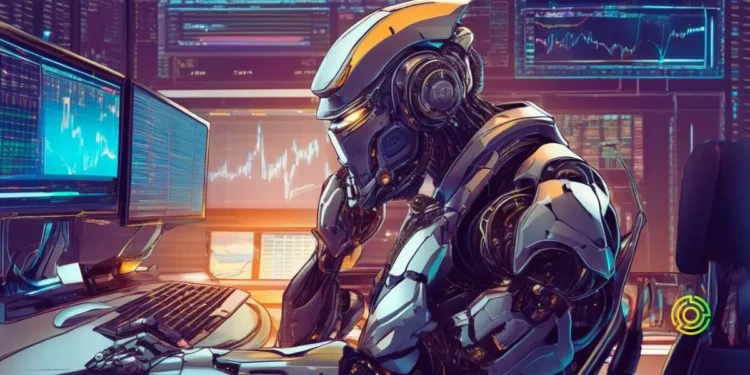In a recent interview with the renowned “Financial Times,” Gary Gensler, the Chairman of the U.S. Securities and Exchange Commission (SEC), issued a stark warning about the potential impact of artificial intelligence (AI) on the financial industry. According to Gensler, it is “almost inevitable” that AI could provoke a financial crisis in the late 2020s or early 2030s, as Wall Street rushes to embrace this new technology.
Gensler’s Concerns
Chairman Gensler expressed his concerns about the widespread adoption of AI in the financial sector, emphasizing that the dependency on AI models developed by technology companies could lead to “economic chaos.” He stated, “I believe that in the future, we will have a financial crisis, and in the subsequent reports, people will say, ‘Ah-ha! There was a data aggregator or an AI model we trusted.'”
The Call for AI Regulation
Acknowledging the risks associated with AI technology, Gensler called for comprehensive regulation that addresses both the underlying AI models created by tech companies and their usage by Wall Street banks, describing it as a “cross-cutting regulatory challenge.” He noted, “It’s a tough financial stability issue to address because most of our regulation is referred to individual institutions, individual banks, individual money market funds, individual brokers.”
Wall Street’s Enthusiasm for AI
It’s worth noting that Wall Street banks have eagerly embraced generative AI technology, as demonstrated by the popular launch of the “ChatGPT” chatbot last year. Despite Chairman Gensler’s apprehensions, some within the industry have deemed his claims exaggerated. They argue that, on the whole, AI is more likely to reduce the chances of a market collapse.
The Potential of AI to Drive the Current Market
One of the primary concerns among market experts is the fear that a limited number of AI models could prompt investors to follow herd behavior, where many buy or sell simultaneously based on the same instructions. However, over time, the proliferation of AI models is expected to contribute to market diversification rather than centralization.
Furthermore, it’s essential to highlight that major investment firms are unlikely to employ the same models as their competitors, as they could be affected by erroneous signals from AI models. Consequently, banking institutions may develop their proprietary models, fostering competitiveness to create superior models and promoting technological sector development.
On the other hand, AI technology has the potential to increase productivity in numerous companies, driving up stock prices and benefiting the overall market. For instance, the giant Morgan Stanley recently launched an AI assistant based on OpenAI’s GPT-4 model, designed to assist financial advisors in accessing market information. Similarly, JPMorgan has filed a patent for an AI model called “IndexGPT” aimed at aiding traders in making better investment decisions.
Banking Institutions’ Measures
Despite their experimentation with AI, banks have also taken stringent measures against the use of ChatGPT. For instance, institutions such as Goldman Sachs, Deutsche Bank, and Bank of America have prohibited their employees from using ChatGPT at work.
In conclusion, while Chairman Gensler’s warnings of an impending financial crisis caused by AI technology have garnered attention, the broader consensus suggests that the financial industry is likely to adapt and harness the potential of AI for the better. As AI continues to evolve, its impact on the financial sector remains a subject of ongoing debate and scrutiny.
FAQs
What is the basis of Chairman Gensler’s concern regarding AI and the financial industry?
Chairman Gensler is concerned that the widespread adoption of AI in the financial sector, coupled with the reliance on AI models created by technology companies, could lead to a financial crisis in the near future.
Why does Gensler call for AI regulation?
Gensler believes that comprehensive regulation is necessary to address the risks associated with AI in both the development of AI models and their usage by Wall Street banks.
How are banks in Wall Street embracing AI technology?
Wall Street banks have been enthusiastic about adopting generative AI technology, such as the “ChatGPT” chatbot.
How might AI technology contribute to market diversification?
Over time, the proliferation of AI models is expected to lead to market diversification as institutions create their proprietary models to differentiate themselves from competitors.
What are some measures taken by banking institutions regarding the use of AI technology?
Some banking institutions, including Goldman Sachs, Deutsche Bank, and Bank of America, have prohibited their employees from using AI technology, such as ChatGPT, at work.
Follow us on our social networks and keep up to date with everything that happens in the Metaverse!
Twitter Linkedin Facebook Telegram Instagram Google News Amazon Store












































